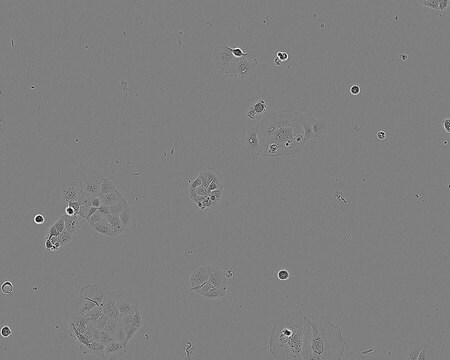AsPC-1
96020930, human pancreas (ascites meta), Not specified
Synonym(s):
ASPC1 Cells
About This Item
Recommended Products
Product Name
AsPC-1, 96020930
biological source
human pancreas (ascites meta)
growth mode
Adherent
karyotype
Not specified
morphology
Not specified
products
carcinoembryonic antigen (CEA), human pancreas associated antigen, human pancreas specific antigen, mucin.
receptors
Not specified
technique(s)
cell culture | mammalian: suitable
relevant disease(s)
metastasis
shipped in
dry ice
storage temp.
−196°C
Cell Line Origin
Cell Line Description
Culture Medium
Subculture Routine
Other Notes
Choose from one of the most recent versions:
Certificates of Analysis (COA)
Sorry, we don't have COAs for this product available online at this time.
If you need assistance, please contact Customer Support.
Already Own This Product?
Find documentation for the products that you have recently purchased in the Document Library.
Related Content
We offer more than twenty ECACC pancreatic cancer cell lines of human, rat, or mouse origin, including PANC-1. Choose cells based on mutations in KRAS, TP53, SMAD4, and other key genes, or by demonstrated suitability for applications such as toxicity, xenograft models, and drug response studies.
Our team of scientists has experience in all areas of research including Life Science, Material Science, Chemical Synthesis, Chromatography, Analytical and many others.
Contact Technical Service


